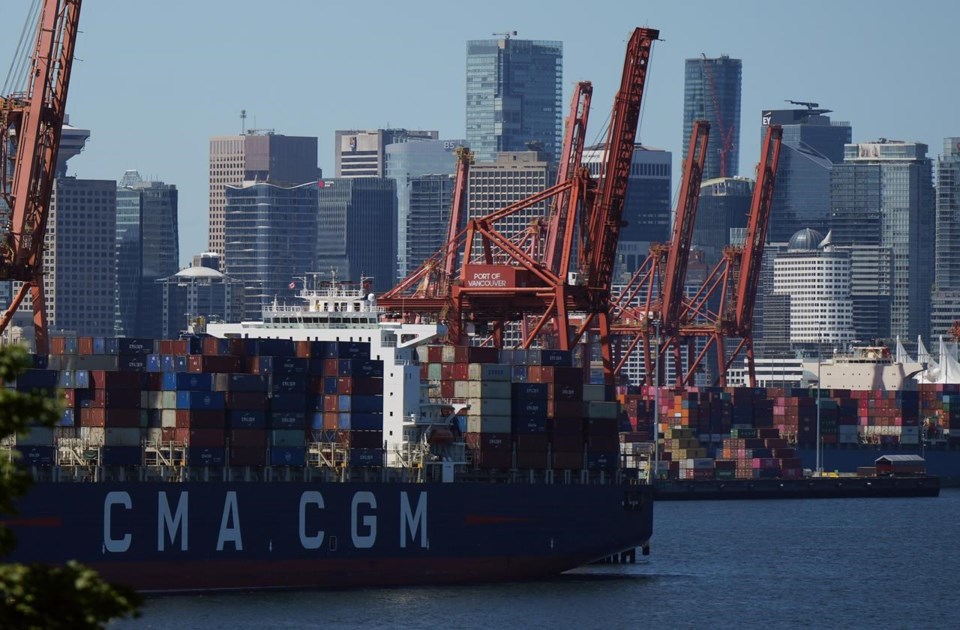OTTAWA — Lower shipments of gold and the B.C. port strike weighed on imports as Canada's merchandise trade deficit for July narrowed compared with June, Statistics Canada said Wednesday.
The agency said the country posted a trade deficit of $987 million for the month compared with a revised deficit of $4.9 billion in June.
"The B.C. port strike weighed on trade activity in July, and is expected to continue to have an impact in the coming months as the backlog clears," BMO economist Shelly Kaushik wrote in a report.
The result for July came as total imports fell 5.4 per cent with imports of metal and non-metallic mineral products down 25.3 per cent.
Statistics Canada said imports of the subcategory including unwrought gold, silver, and platinum group metals, and their alloys fell 60.5 per cent in large part because of lower gold asset transfers between financial institutions.
The agency also said imports of goods that typically come from Pacific Rim countries and rely on B.C. ports were lower.
A strike by port workers in B.C. shut down more than 30 port terminals and other sites for 13 days in July.
Imports of consumer goods fell 4.9 per cent, while electronic and electrical equipment and parts dropped 6.4 per cent. Imports of industrial machinery, equipment and parts declined 6.1 per cent.
Meanwhile, total exports rose 0.7 per cent as lower exports of some goods due to the port strike were more than offset by increases in products less affected by the job action.
Exports of aircraft and other transportation equipment and parts rose 23.4 per cent in July to reach a record of $3.2 billion as exports of aircraft almost doubled, while exports of farm, fishing and intermediate food products gained 9.7 per cent.
In volume terms, overall imports in July fell 4.3 per cent, while exports edged down 0.2 per cent for the month.
Regionally, Canada's merchandise trade deficit with countries other than the United States narrowed to $8.4 billion in July compared with $11.4 billion in June.
Meanwhile, the country's merchandise trade surplus with the United States rose to $7.4 billion in July compared with $6.4 billion in June.
In a separate report, Statistics Canada says the country's international trade in services deficit increased to $1.4 billion in July compared with $1.1 billion in June as imports of services rose 1.7 per cent to $16.4 billion and exports of services edged down 0.3 per cent to $15.0 billion.
Canada's trade balance when the country's trade in goods and services were combined came to a deficit of $2.4 billion in July compared with a deficit of $6.0 billion in June.
This report by The Canadian Press was first published Sept. 6, 2023.
The Canadian Press

